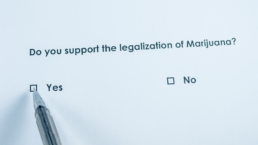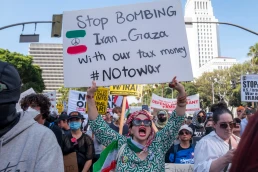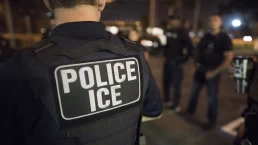We shouldn’t treat cannabis like heroin. But we shouldn’t treat it like ketamine either, as a federal agency now recommends.
By Paul Armentano, OtherWords
Nearly a year ago, the Biden administration asked the Department of Health and Human Services to reconsider how marijuana is scheduled under federal law.

Under the Controlled Substances Act (CSA) of 1970, different drugs are regulated or prohibited according to their placement in five different “schedules.”
The federal government currently puts marijuana in Schedule 1 — the most restrictive level, which it shares with heroin, ecstasy, and other drugs. By definition, substances in this category must possess “no currently accepted medical use” or “accepted safety for use… under medical supervision.”
After a long internal process, the Department of Health and Human Services now recommends removing the drug from Schedule 1. While the explicit details of the recommendation aren’t public, Bloomberg reports that the agency is suggesting moving marijuana to Schedule III.
The HHS recommendation now goes to the Drug Enforcement Administration (DEA), which will conduct its own scientific review. In the past, most recently in 2016, the agency has categorically refused to reschedule the drug. We likely won’t know how the DEA will respond for some time.
In the meantime, some observers have lauded the proposed change as a giant step forward. But my own reaction is more restrained.
That’s because reclassifying cannabis from Schedule I to a lower classification (like II or III) won’t bridge the widening gap between state and federal marijuana laws. Simply put, rescheduling marijuana fails to provide states with the explicit legal authority to regulate it within their borders as they see fit, free from federal interference.
To date, 38 states regulate the production and distribution of cannabis products for medical purposes. Twenty-three of these states regulate the possession and recreational use of marijuana for adults. All of these state laws are in conflict with federal marijuana laws — and they will remain in conflict even if the drug is rescheduled.
That’s because Schedule III substances — which include ketamine, anabolic steroids, testosterone, and others — are uniformly regulated by the federal government. Legal access to these substances is limited to those with a prescription from a licensed physician and who obtain the product from a licensed pharmacy.
Currently, no states regulate cannabis this way — nor are they likely to reconstruct their existing laws and regulations to do so. That means citizens and state-licensed operators following the law in legal states will still be violating federal law. And the DEA will still have the same authority it has now to crack down.
A far more productive outcome of the current scheduling review would be to deschedule cannabis — to remove it from the Controlled Substances Act altogether and give states greater discretion to establish their own distinct marijuana policies. That would put cannabis in line with how we treat alcohol and tobacco, two far deadlier substances.
There’s recent precedent for this. In 2018, Congress completely removed hemp plants containing no more than 0.3 percent THC, as well as certain cannabinoids derived from them, from the federal scheduling system.
By contrast, rescheduling fails to provide any federal legal recognition for either the state-licensed cannabis industry or those adults who use the plant responsibly in compliance with state laws.
Descheduling cannabis would remove federal intrusion from state marijuana programs and respect America’s longstanding federalist principles allowing states to serve as “laboratories of democracy.”
Paul Armentano is the Deputy Director for NORML, the National Organization for the Reform of Marijuana Laws.This op-ed was distributed by OtherWords.org.
Recent Posts
Is A Citizens United 2.0 Right Around The Corner?
July 15, 2025
Take Action Now Is it possible for American democracy to be further degraded by the influence of billionaires? Thanks to champion of the working…
U.S. Leaders Gave Up On Diplomacy With Iran. We Must Make Them Return To It.
July 15, 2025
Take Action Now Building an antiwar movement means preventing the systemic U.S. aggression that creates the conditions for war.By Hanieh Jodat,…
What To Do When You See ICE In Your Neighborhood
July 14, 2025
Take Action Now How can you deter the Trump administration’s immigrant deportation machine when it pops up in your community? Follow these…
ICE Campaign Of Violence Will Lead To More Deaths
July 14, 2025
Take Action Now Jaime Alanis’s death shows the horrific consequences of a secret police force behaving with utter impunity.By Natasha Lennard, The…




